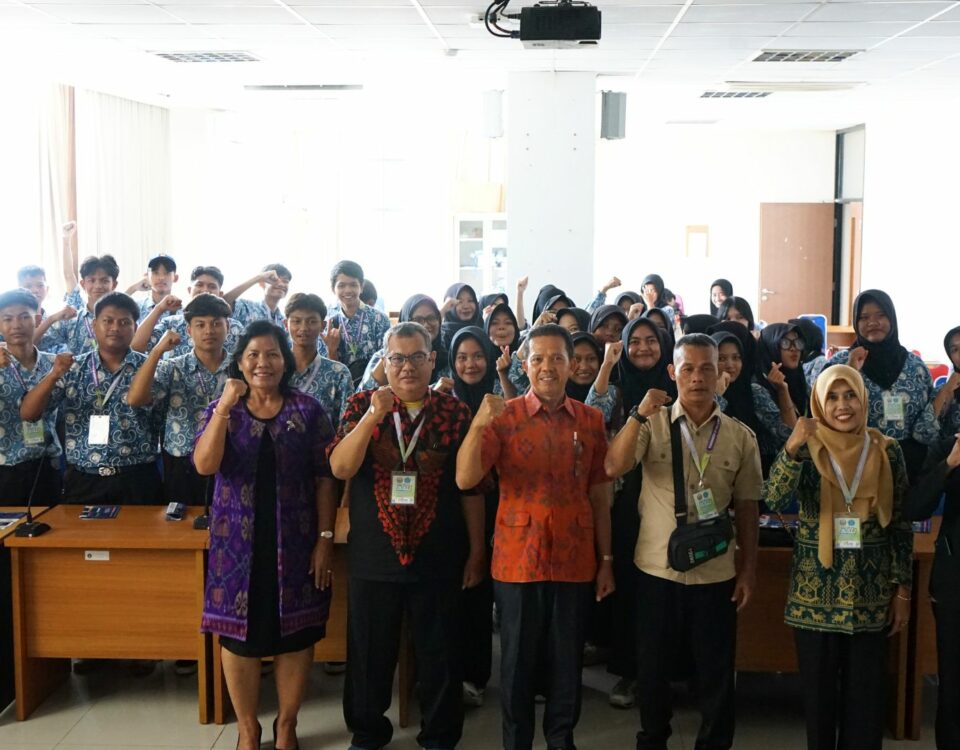Trash management in household environments plays a crucial role in maintaining cleanliness and public health. In many regions, waste collection and disposal still depend on manual efforts by residents or cleaning staff. This often leads to excessive waste buildup and environmental pollution and poses health risks for the community. Moreover, direct contact with trash bins increases the potential disease transmission around the waste disposal areas. To tackle these issues, smart innovations are needed for more effective waste management at the household level.
A team of students from Ganesha University of Education (Undiksha), consisting of I Gede Gelgel Abdiutama as the team leader, along with members Putu Adi Widyantara and Putu Raditia Satriawan, all from the Informatics Engineering Program in the Faculty of Engineering and Vocational Studies, developed an innovation titled “ROBOBIN – LoT-Based Automated Smart Bin for Trash Management” under the supervision of I Nyoman Saputra Wahyu Wijaya, S.Kom., M.Cs. This innovation, created through the Student Creativity Program (PKM), integrates Internet of Things (IoT) technology to establish a smart, efficient, and automated trash management system.
The ROBOBIN prototype utilizes the ESP32 microcontroller as the core of the system, connecting various sensors and modules installed within the bin. It is equipped with ultrasonic sensors and servo motors for object detection and automated lid control. Additionally, the system operates in standby mode using a relay system powered by a rechargeable battery, which can be recharged via a USB Type-C cable. The bin also features integration with Telegram Bot for real-time monitoring and remote control by the user. This innovation aims to provide smart, automated, and sustainable solutions to waste management issues across various environments, contributing to more efficient and hygienic waste disposal practices.





